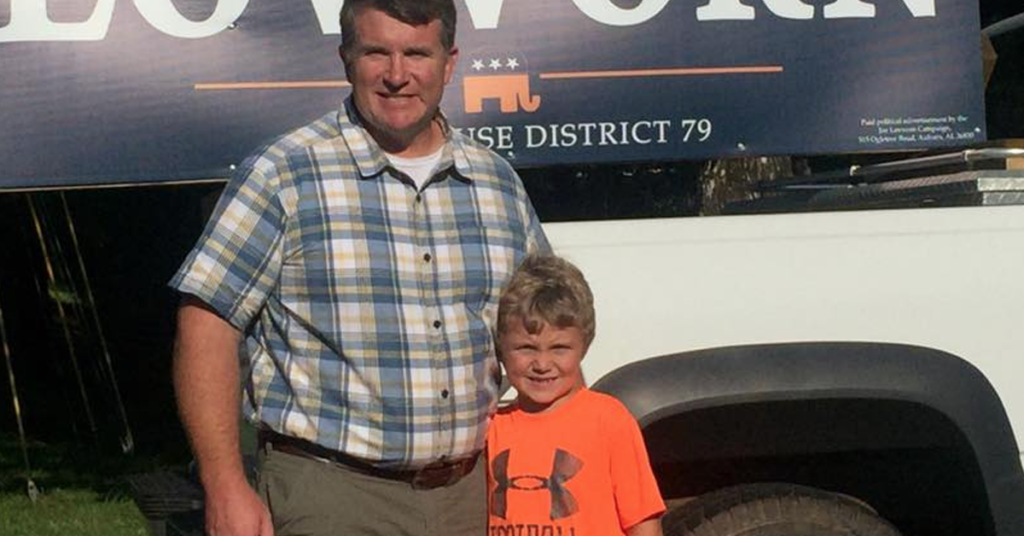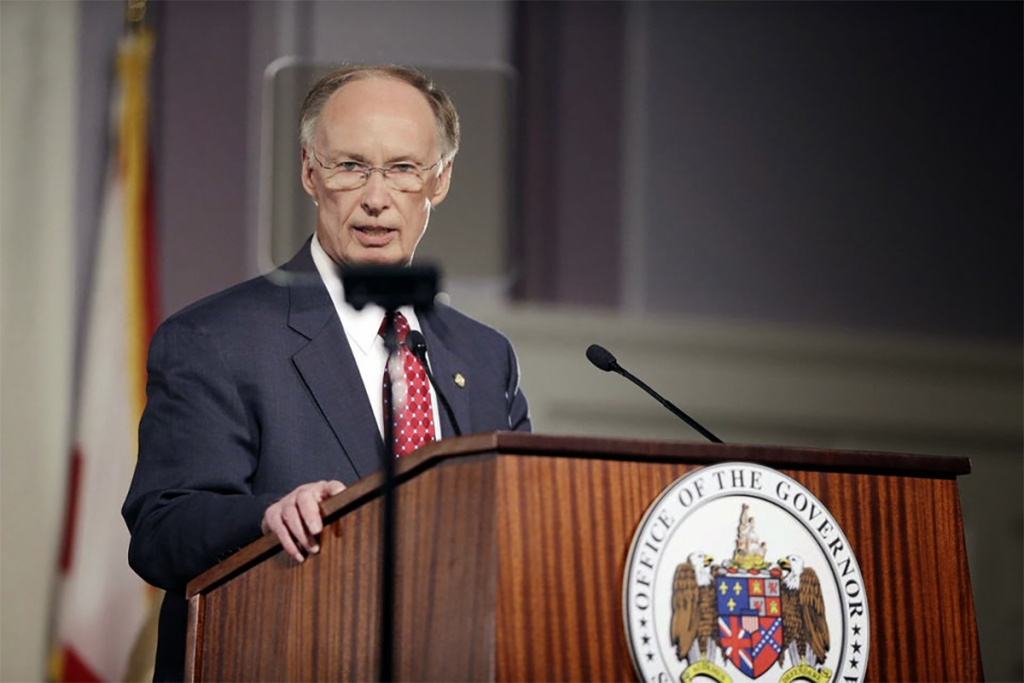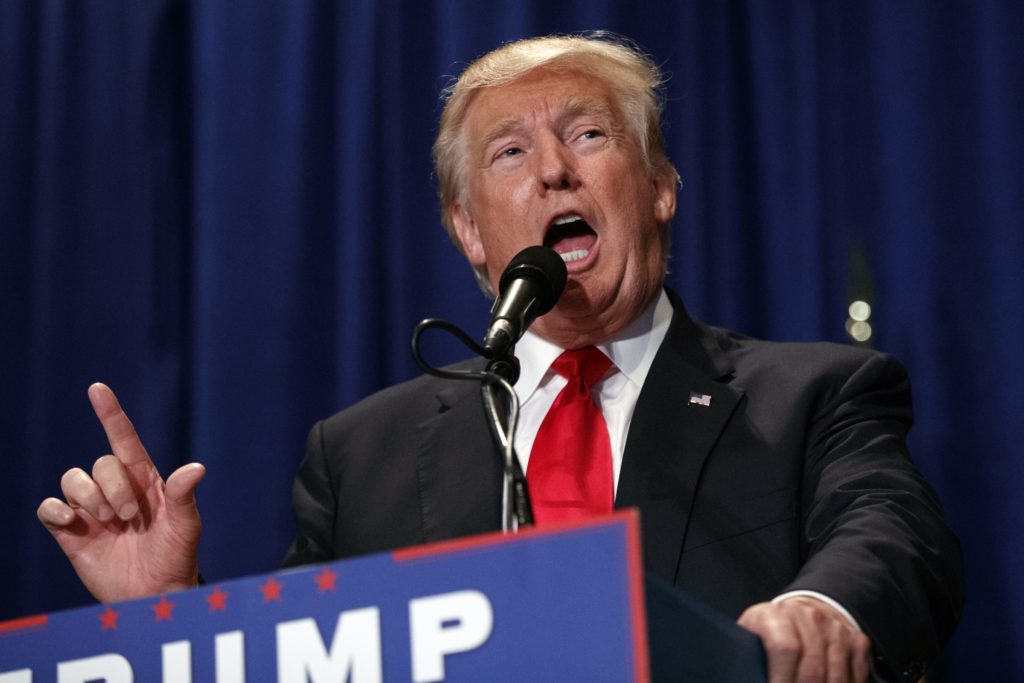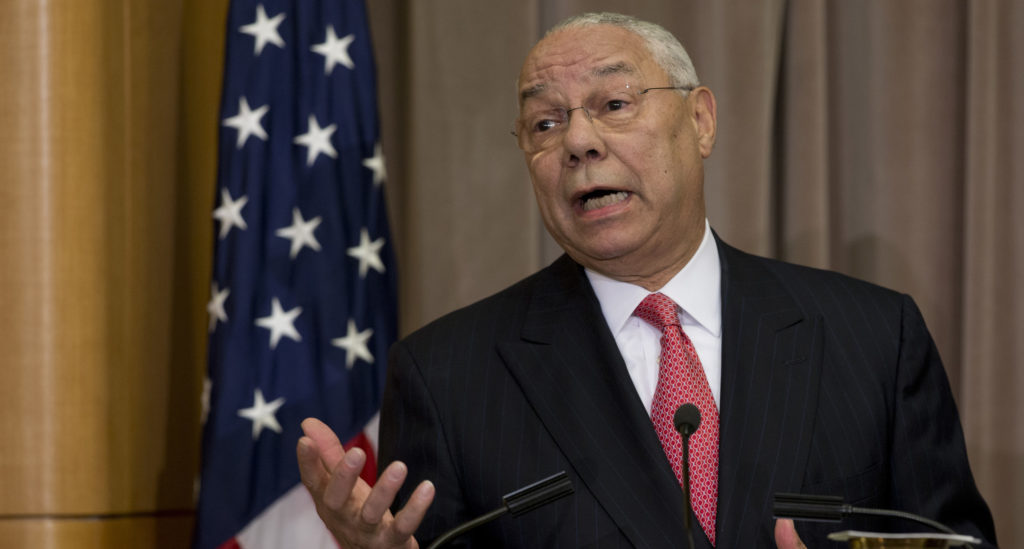Auburn firefighter Joe Lovvorn wins GOP primary for Mike Hubbard’s former seat

Just four months after 12 Lee County jurors found former Alabama House Speaker Mike Hubbard guilty on 12 counts of public corruption — agreeing with prosecutors’ assertions that the powerful Republican used the influence and prestige of his political offices to benefit his companies and clients — voters from House District 79 went to the polls to decide the Republican nominee who will run to replace him. Jay Conner, Joe Lovvorn, Brett Smith, and Sandy Toomer were all on on Tuesday’s ballot for voter consideration. Unofficial results show Lovvorn, a local firefighter and business owner, has come away with the victory, taking home 51 percent of the vote — enough to move on to the general election. According to Election Manager Robert Garris, Lovvorn received 2,097 votes, but results won’t be official until next week. For the past 20 years Lovvorn has worked as an Auburn firefighter and is a battalion chief. He also owns a moving company he began 12 years ago. Lovvorn will face Libertarian candidate Gage Fenwick on Nov. 29 for the general election. No Democrats are in the race. Unofficial results of the special election: Joe Lovvorn: 2,017 (50.32%) Sandy Toomer: 1,059 (26.42%) Brett Smith: 501 (12.50%) Jay Conner: 431 (10.75%)
Robert Bentley awards over $700K to support Alabama Launchpad program

Designed to help high-growth companies start, stay and grow in Alabama while supporting entrepreneurship statewide, the Alabama Launchpad program is getting a hefty investment from Gov. Robert Bentley to continue its mission. Bentley is awarding the 10-year-old program of the Economic Development Partnership of Alabama a $707,488 grant. “Alabamians benefit when our entrepreneurs can turn innovative ideas into companies that create jobs,” Bentley said. “Alabama Launchpad offers important resources to help startup companies transform from dreams to viable businesses.” According to the Alabama Launchpad’s 2015 Annual Report, the program has created 365 jobs over the past decade. Throughout 2016, Alabama Launchpad is hosting multiple rounds of “Shark Tank”-style business-plan competitions with winners receiving a share of up to $250,000 to further develop their businesses. Since its inception in 2006, Alabama Launchpad has awarded $2.3 million to 51 companies. The next round of the Alabama Launchpad competition begins in mid-October.
In Florida, Donald Trump faces a Hillary Clinton campaign behemoth

For Donald Trump, the fight for Florida begins and ends with mass appeal: signature rallies and direct social media contact with voters who believe he can “make America great again.” Add some 30 Florida Trump employees to about 80 Republican Party field workers deployed around the state, and that pretty much covers the GOP nominee’s conventional ground game operation in the largest battleground state. Then there’s Hillary Clinton: 51 offices, with more on the way, and 500 employees combing Florida, and an overall ground game that rivals that of the previous Democratic nominee, President Barack Obama. Trump loyalists say they have a deliberate strategy and far-reaching footprint to counter the Clinton behemoth, even if his apparatus doesn’t measure up in campaign offices, staff and paid advertising. But the organizational disparity leaves more than a few Republicans scratching their heads. All agree Trump has no path to the required 270 electoral votes without claiming Florida’s 29. “Everyone keeps saying you’re not doing this in a traditional way, why?” says Trump adviser Karen Giorno. “Well, we don’t have a traditional candidate.” She oversaw Trump’s Florida operation from the primary season until last week, when she moved to national duties. Giorno points to thousands of volunteers led by unpaid chairmen in each of Florida’s 67 counties. The Republican National Committee says it has 1,000 trained volunteers to go with its employees. Yet only after Labor Day did the Trump campaign open outposts other than the nominee’s state headquarters in Sarasota. Giorno’s replacement by Susie Wiles came just two months before Election Day. Giorno and Wiles say their candidate is in good shape. Either Trump or his running mate Mike Pence will be in the state at least weekly until the election, Giorno said. Between visits, she added, a volunteer network, led by people in each of Florida’s 67 counties, will use more conventional methods to build the Trump coalition. Wiles, in an interview on her first day as the new Florida boss, said judging the campaign by offices and staff “isn’t the right measure we should use,” because “you don’t meet voters sitting in an office.” Prior to her job change, Giorno described a two-track strategy she developed with Trump’s blessing. “Ten thousand people in an arena and thousands of people on social media are just as good as (Democrats) knocking on 10,000 doors — and we’re doing that, too,” Giorno said. “I don’t see how people say we have no ground game just because they don’t see something that operates just like they think it should.” Scott Arceneaux, senior strategist for Clinton’s Florida campaign, calls that “ridiculous spin” in a state where marginal shifts in a diverse electorate can tilt the statewide result. Obama won Florida by fewer than 3 percentage points in 2008 and less than a percentage point four years later, with turnout exceeding 8.3 million both times. Polls for months have suggested another tight race. Trump’s Orange County chairman, Randy Ross, said Arceneaux discounts people like him. Ross, whose territory includes Orlando, shepherds other volunteers who run phone banks and knock on doors using voter lists produced by the Republican National Committee’s data operation, expanded after Obama’s two victories. “We happen to be using things Republicans learned” from Obama, Ross added, “but we are really a movement, just like Mr. Trump calls it.” Brian Ballard, a Trump fundraiser and top lobbyist in the state capital of Tallahassee, said, “Counting campaign offices just doesn’t matter these days.” Florida is slightly less white than the national electorate, but still roughly a microcosm. If the electorate largely reflects 2012, Clinton would capitalize on her standing among African-Americans and Hispanics wary of Trump. Even among Cuban-Americans, a population that has historically leaned Republican, Trump appears to be underperforming — a circumstance that would pad Clinton’s advantage. Yet even if Clinton maintains her advantage among minorities, turnout could drop in places like Orlando and south Florida’s Broward County, yielding her fewer overall votes. That could give Trump an opening if he’s able to goose turnout among whites, particularly in Pensacola, Jacksonville and other GOP strongholds in north Florida. Even so, said Arceneaux, “This is a 1 percent state, so if we win by 2 percent, that’s a landslide.” Facing such a landscape, Giorno conceded Trump is late building his paid campaign infrastructure. But other Florida Republicans point to strong local parties that already were using the national party’s data and support, while running their own outreach programs. Michael Barnett, chairman of the Palm Beach County GOP, for example, says his party has for several years built relationships within the Haitian-American community. That pocket — numbering in the tens of thousands — shows up as black voters on paper, Barnett notes, “but doesn’t have the historical connection with the Democratic Party” that American-born blacks do. Arceneaux, the Clinton strategist, questions whether the overall Republican effort can identify and mobilize voters beyond those who identify themselves as eager supporters, given fewer employees and Trump’s late effort. He joked: “We like to say that Mr. Trump gives us many avenues to victory.” Republished with permission of the Associated Press.
Bradley Byrne votes to boost career and technical education

Alabama 1st District U.S. Congressman Bradley Byrne, a member of the House Education and the Workforce Committee, on Tuesday voted in favor of legislation to boost and reform America’s career and technical education (CTE) programs. The U.S. House of Representatives passed H.R. 5587 — the Strengthening Career and Technical Education for the 21st Century Act — which limits the federal government’s role and empowers states and local community leaders by giving them greater flexibility over how they use federal funds for career and technical education. As an original co-sponsor, Byrne helped write and introduce the legislation, which passed by a vote of 405 to 5 with the support of the entire Alabama delegation, excluding Rep. Terri Sewell, who did not vote. During debate on the bill, Byrne spoke on the House floor about the importance of career and technical education, and he also highlighted important CTE programs in Southwest Alabama. “You see, for too long, we have devalued the importance of career and technical education here in America,” said Byrne on the House floor. “The programs were seen as some sort of second-rate option for students who couldn’t make it otherwise.” “That simply isn’t the case,” Byrne continued, “Instead, CTE programs offer real opportunities to students of all ages and from all backgrounds. And, with this bill, we are making it clear that career and technical education is a critical educational option that leads to good-paying jobs.” Among the many reforms included in the bill, H.R. 5587 would: Empower state and local community leaders; Improve alignment with in-demand jobs; Increase transparency and accountability; and Ensure a limited federal role. The legislation is supported by a range of organizations including the U.S. Chamber of Commerce, the Alabama Association of School Boards, the School Superintendents Association, the National Association of Manufacturers and the American Farm Bureau Federation.
Leaked Colin Powell emails fault Donald Trump and Hillary Clinton

Former Secretary of State Colin Powell, in newly leaked emails, criticized both major presidential candidates, calling Donald Trump “a national disgrace” and lamenting Hillary Clinton‘s attempt to equate her email practices with his. The emails were first reported by Buzzfeed News late Tuesday. Powell, a respected retired general who served under Republican presidential administrations, told BuzzFeed that he does not deny the emails’ authenticity. In a subsequent statement to NBC News, Powell said “the hackers have a lot more” of his emails. In the emails, Powell said he stayed relatively quiet during the rise of Trump, the Republican presidential nominee. “To go on and call him an idiot just emboldens him,” Powell said. The emails also include Powell’s thoughts on Clinton’s email woes. He criticized Clinton aides for tying him into the controversy over the Democratic nominee’s use of a private email server while she was secretary of state. Powell has acknowledged using a commercial email address for some official business. Clinton avoided using the State Department’s email completely, using a private email server. In an email reported by NBC, Powell wrote that he had told Clinton’s “minions repeatedly that they are making a mistake trying to drag me in, yet they still try.” In another spot, he declared of Clinton that “Everything HRC touches she kind of screws up with hubris.” Among Powell’s emails, however, are comments that reflect that he too sought to use private email as a way to avoid creating documents retained by the government. Decrying “friggin record rules,” Powell wrote that he “saw email more like a telephone than a cable machine,” in one email cited by The Intercept. “As long as the stuff is unclassified.” Congressional Democrats have seized on the use of a private email addresses by Powell and former Secretary of State Condoleezza Rice as a foil for Republican attacks on Clinton. By suggesting that he didn’t view work conducted via private email as a permanent government record, Powell could offer those Democrats additional ammunition. The emails were posted on the website DCLeaks.com, a website which has been alleged to be an outlet for hackers tied to the Russian intelligence groups. The website – which says it intends to expose the misuse of political power -has previously released emails from other Washington political figures. Republished with permission of The Associated Press.
Census numbers reveal decline in uninsured Alabamians

Health insurance statistics released Tuesday by the U.S. Census Bureau indicate that the rate of uninsured Americans dropped in 47 states last year, including Alabama. The data reveals only one in 10 Alabamians lacked health insurance coverage in 2015, an improvement from the state’s 13.6 percent uninsured rate in 2013, the last year before the Affordable Care Act took full effect. Tuesday’s numbers come in the midst of a volatile election season, where citizens across the country continue to weigh the pros and cons of the Affordable Care Act, often called Obamacare, as they decide who they’re voting for in November. For some, Tuesday’s numbers serve as a reminder for the need for an expanded Medicaid program in the state. “[The] good news about health coverage in Alabama would be even better if the state had expanded Medicaid,” said Alabama Arise State Coordinator Kimble Forrister. “More Alabamians have coverage today than in 2013, and the Affordable Care Act deserves much of the credit for those gains. Nearly 200,000 Alabamians have signed up for health insurance through the ACA marketplace. Many of them have coverage for the first time, and all of them now have the peace of mind that comes with knowing that a medical emergency won’t lead to financial ruin.” According to Forrister, Medicaid expansion would close the coverage gap for more than 300,000 uninsured across Alabama. “That would mean a more productive workforce, thousands of new jobs and big state savings on mental health care and other services,” Forrister explained. “We’re being left out. States like Kentucky and West Virginia that have expanded Medicaid have much lower uninsured rates than those that haven’t. They’re also enjoying the job creation and cost savings that come from injecting new federal money into their budgets and economies. It’s time for Alabama to expand Medicaid and reap those same benefits.”
VictoryLand casino reopening despite court rulings

The VictoryLand casino is opening in Macon County despite the Alabama Supreme Court ruling that its previous electronic bingo operations were illegal. Scores of cars lined up outside the facility east of Montgomery waiting on it to resume operations Tuesday afternoon. The state seized more than a thousand of the slot-like gambling machines during a raid at VictoryLand in 2013. The Alabama Supreme Court in March ruled the machines were not what was intended by state laws allowing card and paper type bingo games. Owner Milton McGregor last month announced the reopening of the electronic bingo business. McGregor says Macon County’s sheriff and district attorney have assured him the games are legal. He says the casino will offer 500 bingo terminals. Republished with permission of The Associated Press.
Corporal punishment persists in many Alabama schools

Think being yelled at by a teacher or being sent to detention is bad? Nearly 19,000 Alabama students were paddled in the 2013-2014 school year. That’s according to newly available data from the U.S. Department of Education’s Office for Civil Rights, which found more than 4,000 schools across the country, and several within Alabama, still use corporal punishment as a form of discipline. Despite calls from the U.S. Department of Education to curb punitive discipline — which has been shown to affect minority and disabled students disproportionately — Alabama and 18 other states still allow corporal punishment in their public schools, although parental permission is often required. In fact, 107 of Alabama’s 133 school districts use corporal punishment, which ranks the Yellowhammer Sate third in the nation in percentage of students paddled overall, at 2.5 percent. Several medical and human rights groups have called for an end to the practice of paddling, calling it ineffective and potentially harmful. “You want to keep kids in the classroom, but to suggest that the only way to keep them in is to beat them with a stick is ludicrous,” said Dennis Parker, director of the ACLU’s Racial Justice Program. “Paddling can cause pain, humiliation, and in some cases deep bruising or other lasting physical or mental injury,” an ACLU-Human Rights Watch report said. In Alabama, males are paddled at a 4.5-to-1 rate over females. The data also shows black students disproportionately receive physical discipline as opposed to white students.


